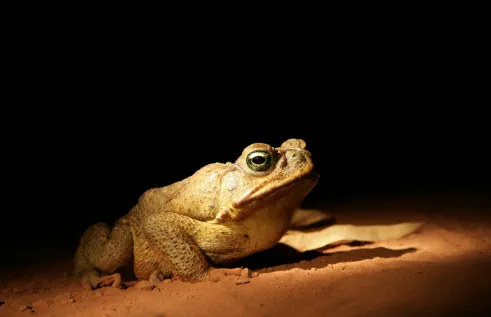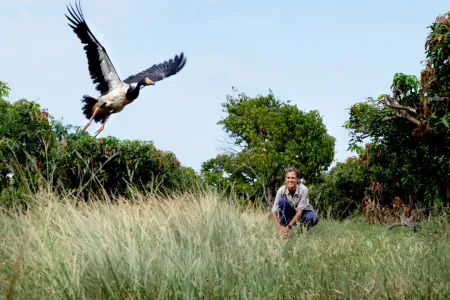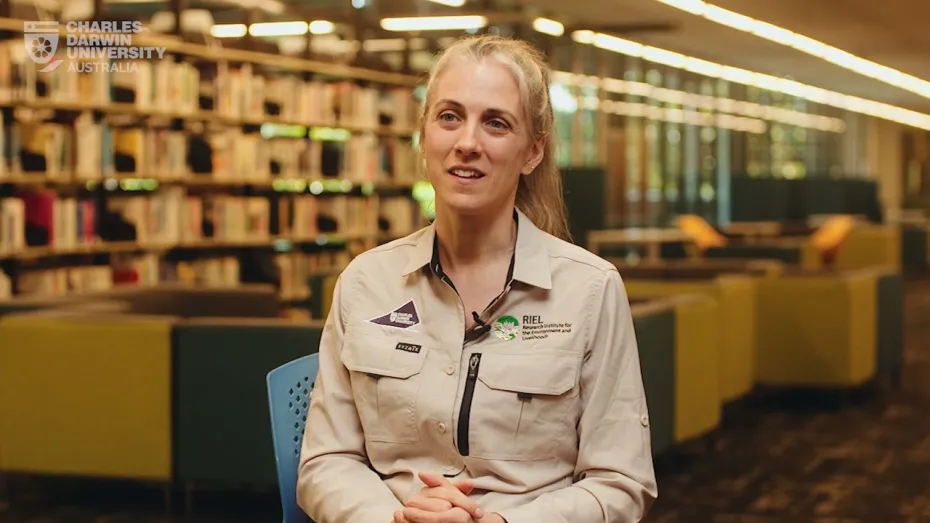News
Research finds ways to improve magpie goose management on NT mango farms
Research from Charles Darwin University (CDU) has identified ways to improve the management of magpie geese to better assist mango growers as the Northern Territory goes into mango season.
PhD student and environmental science researcher Amélie Corriveau has recently completed her research in studying the movements and diet of the magpie goose, a large and iconic bird most abundant in the Top End of the Northern Territory.
Although protected wildlife and a totemic animal for Indigenous people, magpie geese can be a headache to local farmers as they feed on crops and cause financial losses.
Ms Corriveau investigated the seasonal movements and food resources of magpie geese in the Northern Territory to help farmers identify appropriate approaches to deal with these birds.
“My research aimed to understand where geese coming on farms were from, whether the same birds came back to the region every year, and how they used the resources available in the agricultural landscape”, Ms Corriveau said.
“The findings showed that the birds were opportunistic and adaptable, but also that they used prior knowledge – the same geese did tend to come back every year. That means that geese are going to be an ongoing challenge from growers, as they can easily locate attractive resources and go back to them.”
Magpie geese were also found to be quite flexible in the areas they use and could go from one local area to another on a whim.
“They could relocate easily and find resources within short distances. They fed on both agricultural and natural occurring plants, but their diet varied among individuals, sites and weeks of the season,” Ms Corriveau said.
These findings provide new insights into magpie goose behaviour and habitat use, which can help farmers manage them.
“They seem to establish within areas where they can have access to shade, water and freshly irrigated grass, which are very attractive in the late dry season.”
This means farmers could reduce the attractiveness of their farms for geese by using underground irrigation systems or night-time irrigation schedules, minimising available water on farms or removing fruit falls.
Setting up alternative areas to divert the birds away from farms could also help reduce damage by keeping birds chased from farms away for longer.
“This is a very complex issue and there is no magical solution. Systemic damage assessments are needed to quantify the actual damage made by geese” Ms Corriveau said.
“Management needs to be adaptable to how the species behave from one season to another. Farmers could also pool resources and coordinate among neighbours to maximise the effectiveness of management actions on farms.”
Ms Corriveau also said the magpie goose is a protected species and we needed to ensure its long-term conservation.
“The population of magpie geese can fluctuate widely, and the geese have a very high socio-economic value in the Northern Territory,” she said.
“They bring in tourism for hunting and bird watching, so it is important to find approaches that enable both the conservation of the species and development of agriculture in northern Australia.”
Charles Darwin University is actively seeking Higher Degree by Research students to take part in research projects like this. Scholarships are available. Learn more.
Related Articles

First “hype cycle” of AI development put tech above humans
Users around the world have rushed to adopt artificial intelligence - especially in safety-critical fields - but a new study has revealed the hype has prioritised technology for technology’s sake instead of human-centred development.
Read more about First “hype cycle” of AI development put tech above humans
Nanoplastics hindering cognitive abilities of fish, international research shows
Nanoplastic exposure can impair the cognitive abilities of fish and could lead to significant impacts on marine species’ ability to survive, according to a new international study.
Read more about Nanoplastics hindering cognitive abilities of fish, international research shows
Eradication would cost billions: NT’s lessons for Pilbara’s cane toad management
Cane toads are predicted to invade Western Australia’s Pilbara region by 2041 if left unchecked, but the Northern Territory’s population of the pests hold key lessons that could save billions in eradication costs.
Read more about Eradication would cost billions: NT’s lessons for Pilbara’s cane toad management

